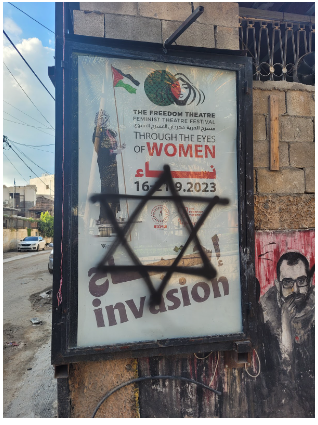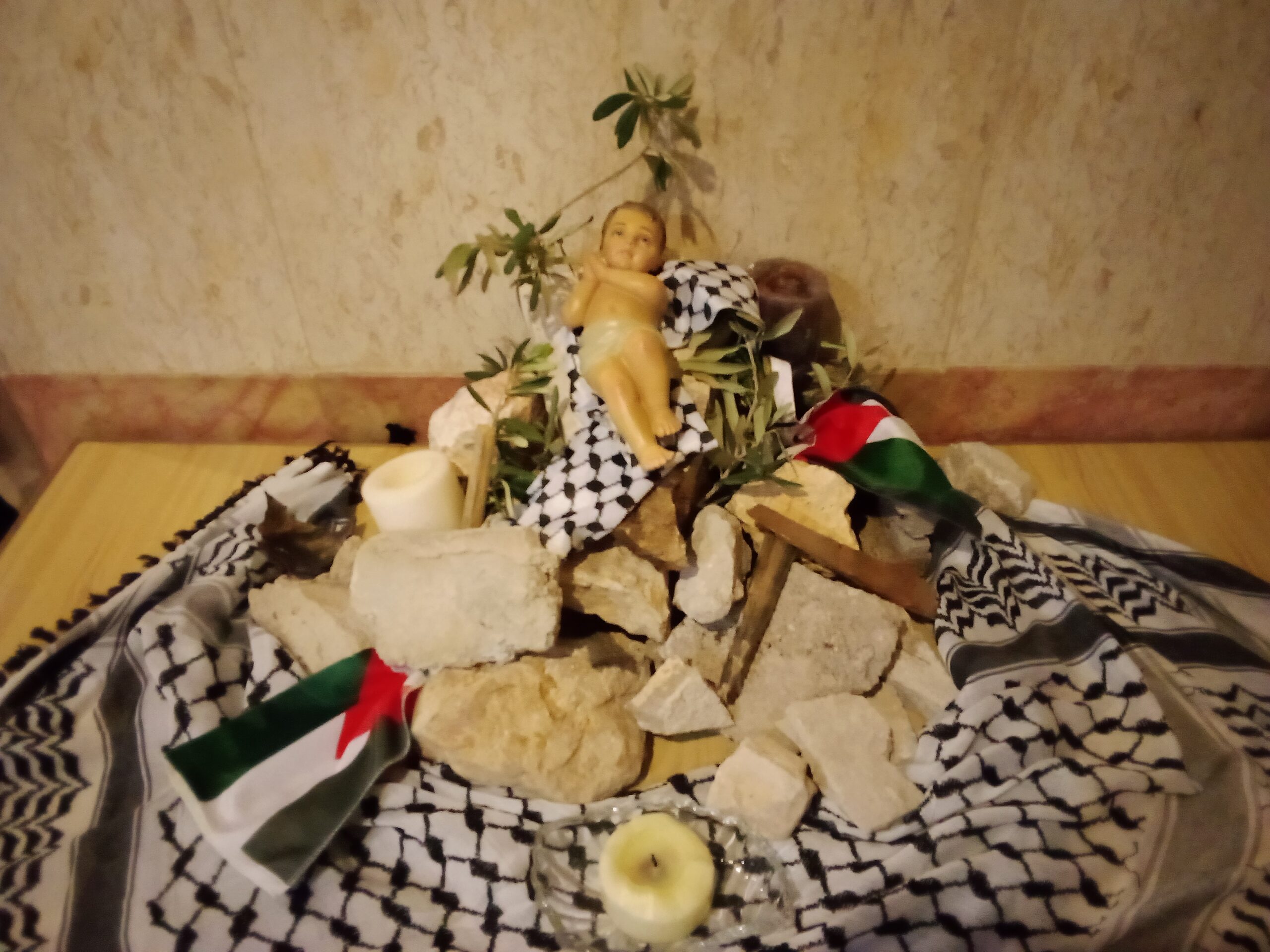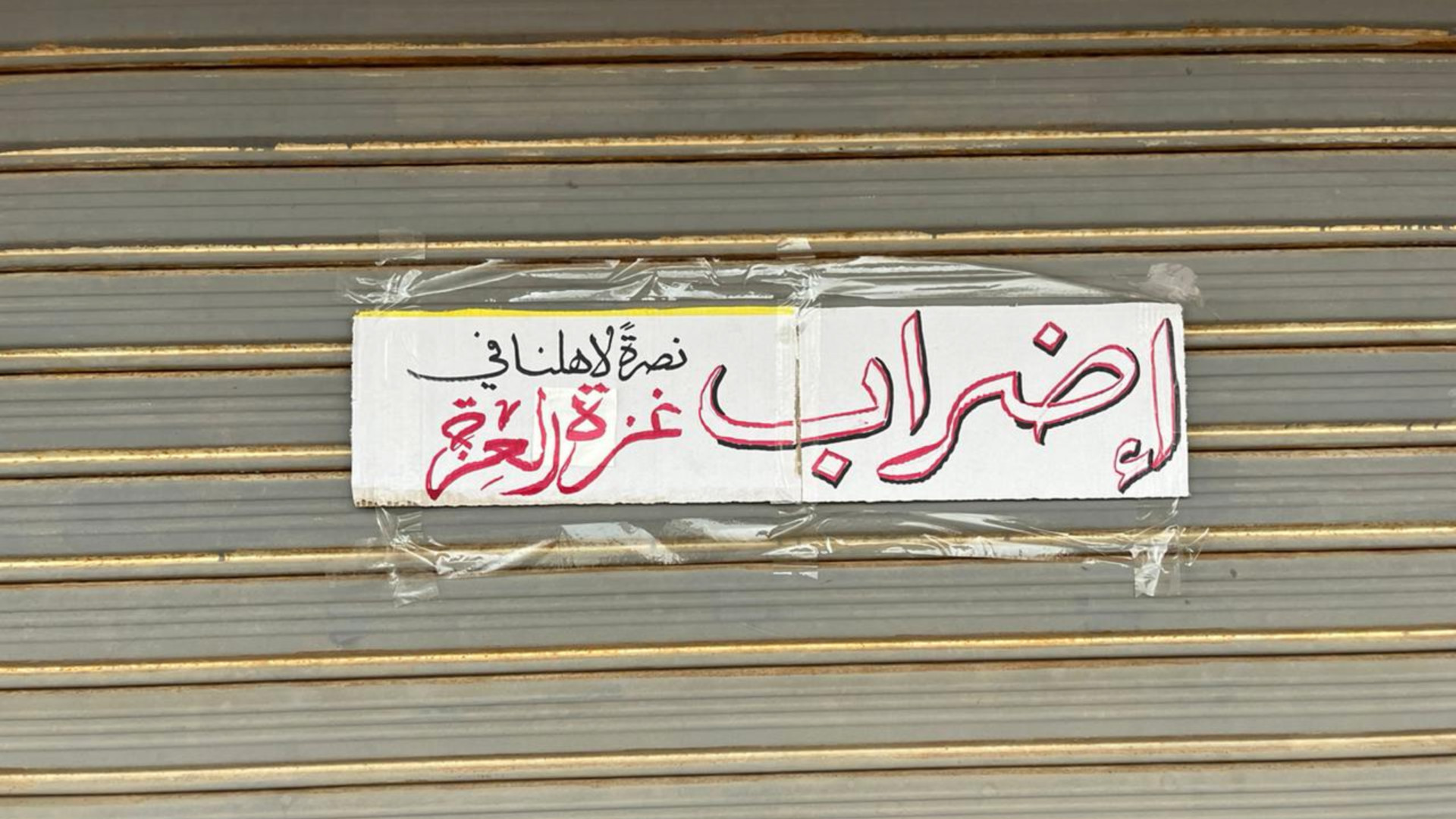Tag: Ethnic Cleansing
-
Jenin: The Other Gaza
17 December 2023 | International Solidarity Movement | Jenin On Wednesday, December 13, I received a message from a fellow actress of the Freedom Theatre informing me that the occupation forces had arrested without charge Mustafa Sheta, theatre director and general manager, Ahmed Tobasi, artistic director, as well as Jamal Abu Joas, acting coach. The…
-
Candles in the Dark
It is nearing Christmas time in Bethlehem. And there is room at the inn this time. A family from Gaza had to go to a far away hospital for their child’s illness. Then October 7th occurred, and then the genocide.
-
Worldwide Pressure Escalates with Global Strike for Gaza
Striking Palestinians across the occupied West Bank have been joined by millions in countries across the world for the Global Strike for Gaza, which was announced by a coalition of major Palestinian factions. The cadence of the strike declarations accelerated rapidly throughout the day in demand of an immediate ceasefire and an end…



